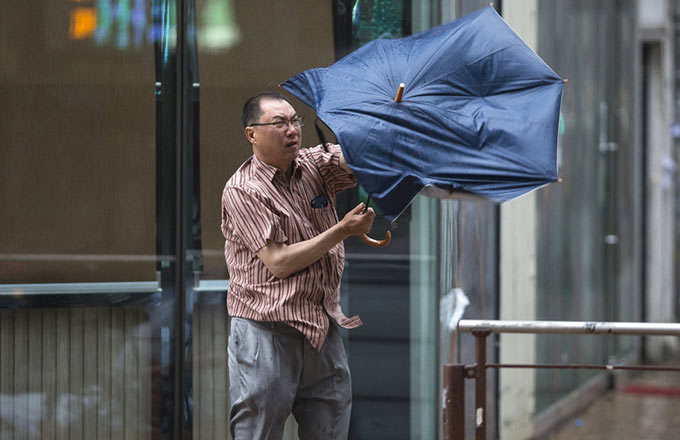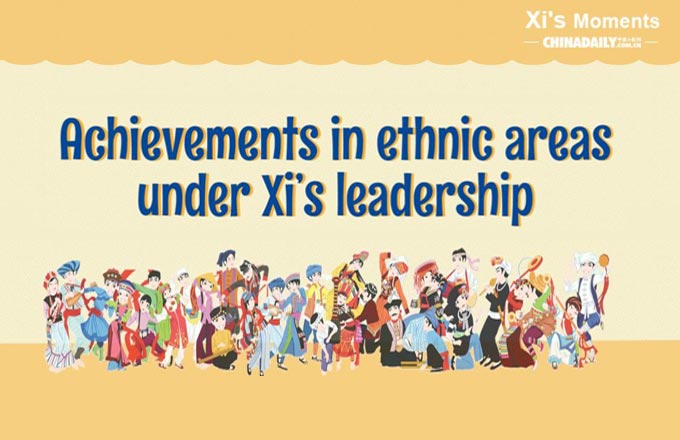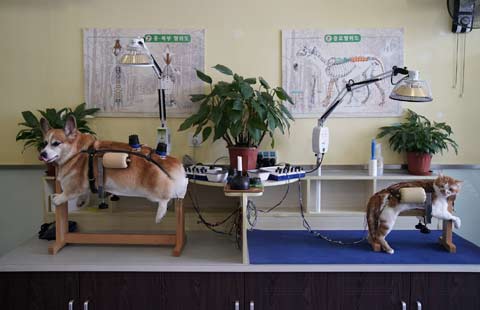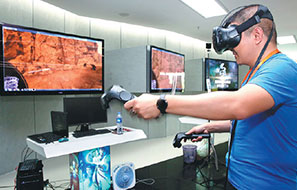HIV-positive students get their chance at college
Fifteen students at a school for HIV-positive students in North China have been enrolled in colleges this year and will start their new lives in September.
Two of them will enter four-year study programs at colleges that award bachelor's degrees, and the rest will go to three-year junior colleges, said Guo Xiaoping, principal of Linfen Red Ribbon School, in Linfen, Shanxi province.
Sixteen senior middle school students at the school - the only one in China that recruits students with HIV - took the college entrance exam this year, he said.
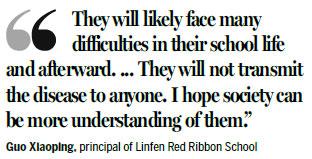
"The students are quite happy with the results, but they are also worried about their future," Guo said.
All of the students were infected by HIV through their mothers, and most have lost one or both parents and have no source of income, he said.
The Chinese Foundation for Prevention of STDs and AIDS has agreed to provide financial assistance so the students can finish their college studies, he said.
Each will get 12,000 yuan ($1,800) to cover tuition for two semesters annually, plus 1,500 yuan per month for living expenses, he said.
Yuan Jizheng, deputy director of the foundation's general office, said the foundation plans to donate about 1.5 million yuan to the school to help the 15 students throughout their college studies.
"The monthly living subsidies include rent, as teachers from the school told us most of the students will not choose to live in dorms provided by the colleges because of privacy concerns, and they are planning to rent a room off campus," she said.
"Each student has received 3,000 yuan in subsidies from the local government, but most of them have given the money to their parents, if they are alive, or to support other guardians, as their families are generally very poor," she said.
Guo believes that the students will choose not to tell others about their HIV condition while in college, but fears the secret may eventually leak out, because the students have to take medication.
"They will likely face many difficulties in their school life and afterward, as people with HIV are still discriminated against in many places, although things have become better in recent years," Guo said.
"If you meet them, you will realize that all of them are actually optimistic and keep a positive attitude," he said. "They will not transmit the disease to anyone. I hope society can be more understanding of them."





